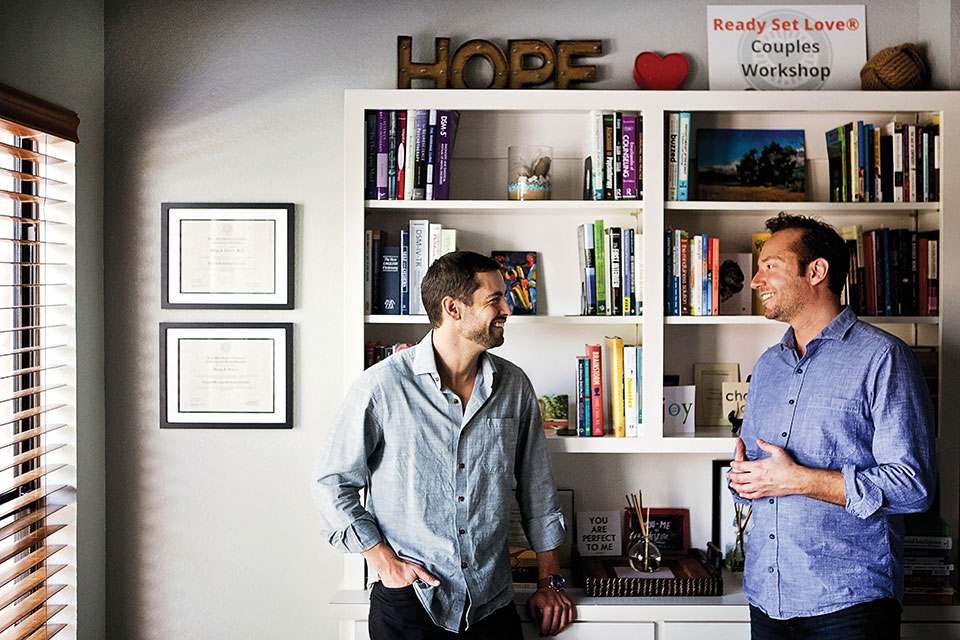Mental Health Column

During this time of the coronavirus pandemic, we have noticed many people needing extra support, whether it’s because their kids are driving them nuts, or because they have higher-than-usual anxiety due to the stress of managing the situation, or because it’s hard to be indoors with your spouse or with roommates this much. The pandemic has been labeled a mental health crisis as much as a physical health crisis, because many people are feeling depressed, stressed, hopeless, anxious, not sleeping well or having relationship problems. We want to encourage you to access support proactively and not wait until you (or someone you know) feels worse.
We often think of this column as a community mental health bulletin, and this time needs that more than ever. So, our public service announcement for the month is to discover your courage to seek out help. As people — and especially in Western society — we think of ourselves as strong, resilient, tough, independent and able to weather stress and the storms of life without needing too much from others. Those are often admirable qualities, and yet sometimes they work against us. In a situation such as the one we find ourselves in, depression can sneak in and become a new baseline before we catch it, sleep problems can become a new normal, anxiety might become something we try to live with even though it affects our family life, and relationships may devolve before we get the right support to navigate the issues involved.
Mental health issues are much like physical ones: Sometimes the body may heal itself over time, but sometimes a condition will get worse until it’s treated. Depression, for example, often characterized by a heaviness, lethargy, and hopelessness that can affect your sleep and eating habits as well as your mood and perspective, often gets worse without intervention, and can become difficult to treat after a period of time. Anxiety, if not addressed, can lead to a new, high stress baseline, panic attacks, anxiety attacks, and fears about our world and environment that increase a sense of isolation. Sleep problems and elevated stress affect everything from emotional resilience to focus, mental processing, memory, inflammation and physical health, and may not go away on their own. And relationship problems — which in some cases have been exaggerated by the current state of affairs—tend to cascade and build up until outbursts or resentments starts to degrade your bond with others in ways that could cause your relationship to fail or take many years to repair.
Pandemic life — helping kids with online school, navigating sharing space a lot more with friends or family, losing a job or experiencing financial stress, and maybe also worrying about the health and safety of family members — is causing an increase in mental health issues and the need for support. The good news is that support is readily available. Therapists, counselors, doctors and other healthcare professionals are prepared to assist, and we know what you may be going through, as we talk to people throughout the day dealing with similar challenges. In particular, a good psychotherapist that can help address the psychological aspects of your situation and coordinate any interventions that may be helpful regarding the physiological side, can support you with the full spectrum of an integrated approach to these types of issues.
Don’t let pandemic life get you down. Monitor yourself for any of these symptoms: High stress, anxiety, sleeplessness, lethargy, hopelessness, and relationship problems, and reach out to a qualified professional if you need support. We recommend reaching out to a therapist before you’re at your wits’ end, as some issues are more difficult to treat if they have persisted or gotten worse. A good therapist is also a helpful resource to navigate other aspects of this unique time, such as career changes, identity exploration, existential concerns and more. We hope you are all feeling strong, resilient and hopeful during this time and that you and your family have remained healthy and safe, but if you’re feeling down, anxious, stressed, or off, or if someone you know is struggling, find the courage to reach out for support!
John Howard and Peter Craig are psychotherapists at PRESENCE, a integrative wellness center supporting your mental, physical and relationship health so you can heal, grow, and thrive in life through leading, science-based psychotherapy and medicine.






